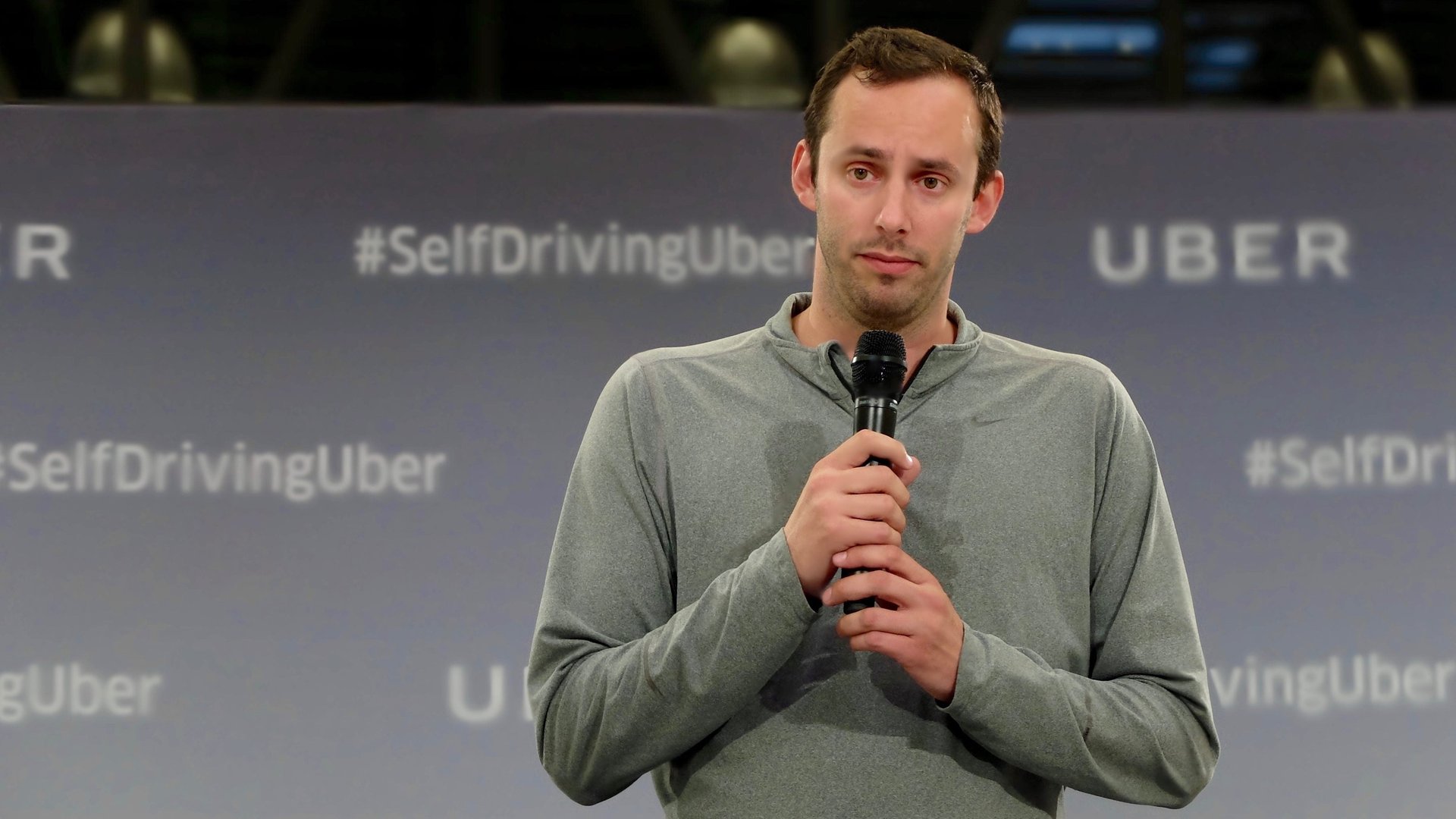Uber’s dispute with Alphabet’s Waymo is very likely headed for a public trial
Uber’s legal battle with Waymo looks set to get much uglier.


Uber’s legal battle with Waymo looks set to get much uglier.
On Thursday night (May 11) a federal judge denied Uber’s request to move its dispute with the Alphabet-affiliated self-driving car maker into private arbitration. The judge also referred the case to the US Attorney “for investigation of possible theft of trade secrets.”
That puts the case on track for a trial by jury and all the public scrutiny that comes with it. Should the dispute have its day in open court, it would mark the first time Uber has been forced to fend for itself in such a manner at the federal level.
Judge William Alsup, who is presiding over the case, also has partially granted Waymo’s request for a preliminary injunction against Uber. Waymo had sought an injunction that would preclude Uber from “making, using, selling, or offering to sell” devices that, it alleged, infringed on its patents. The scope of Alsup’s ruling remains unclear, though; his full decision on the injunction remains under seal because it contains confidential information.
Waymo sued Uber in February 2017, alleging the ride-hailing company stole trade secrets. Waymo alleges that in mid-2015, Anthony Levandowski, one of its self-driving car engineers, met with top executives at Uber about finding a way for the latter to acquire Waymo’s engineering team and its lidar technology (which helps self-driving cars “see”). In December, he downloaded 14,000 files from Waymo’s servers, said to contain technical details for Waymo’s lidar sensors. Over the next several months, in quick succession, Levandowski resigned from Waymo, formed a self-driving truck company known as Otto Trucking, and worked with Uber to prepare for Otto’s acquisition. Uber’s purchase of Otto was formally announced in August 2016.
Both Uber and Levandowski have impeded Waymo’s efforts to ascertain whether the 14,000 stolen files were ever actually used in Uber’s self-driving car project, a key to determining culpability. Levandowski has repeatedly invoked the Fifth Amendment, which protects against self-incrimination. (“He took the Fifth on virtually everything of substance in his deposition,” Charles Verhoeven, a lawyer for Waymo, complained in a hearing in San Francisco on May 3.) Uber, meanwhile, has withheld more than 3,500 documents, citing attorney-client privilege.
In the run-up to yesterday’s decision, Uber had pushed for the case to move to private arbitration rather than a public trial, citing a broad arbitration provision Levandowski signed when he worked at Waymo. Alsup told Waymo earlier this month that the company had only proved Levandowski downloaded 14,000 documents, but not that he handed them over to Uber. “You don’t have any smoking gun,” he said.
If Uber remained confident this “smoking gun” wouldn’t be unearthed, private arbitration could be preferable to a trial by a jury, as jurors are often swayed by emotions and circumstantial evidence. “They’re going to hear about the downloads. They maybe even hear about the Fifth Amendment,” Alsup warned Uber in the May 3 hearing. “Then I’ll just be sitting up here, and the jury will get to decide,” he said.
Uber has been battered by negative publicity this year. It made headlines when a former employee accused Uber of enabling sexual harassment, and again when protestors rallying against US president Donald Trump’s travel ban accused Uber of profiting off of a taxi strike at New York’s John F. Kennedy International Airport. While outrage toward Uber over the taxi strike was misguided, the #deleteUber hashtag it spawned lives on. The company’s treatment of its independent-contractor drivers has also been a constant focus of attention and nearly led to a trial in California.
All of this will likely burden Uber should its dispute with Waymo proceed to a public trial. (There’s still a chance the two companies could settle privately, thus avoiding a trial.)
Uber did not receive yesterday’s news warmly. “It is unfortunate that Waymo will be permitted to avoid abiding by the arbitration promise it requires its employees to make,” a company spokesperson said in an emailed statement. “We remain confident in our case and welcome the chance to talk about our independently developed technology in any forum.” Uber declined to comment on the referral to the US Attorney.
Waymo, unsurprisingly, was more optimistic. “This was a desperate bid by Uber to avoid the court’s jurisdiction,” Johnny Luu, a company spokesperson, wrote in an email. “We welcome the court’s decision today, and we look forward to holding Uber responsible in court for its misconduct.”